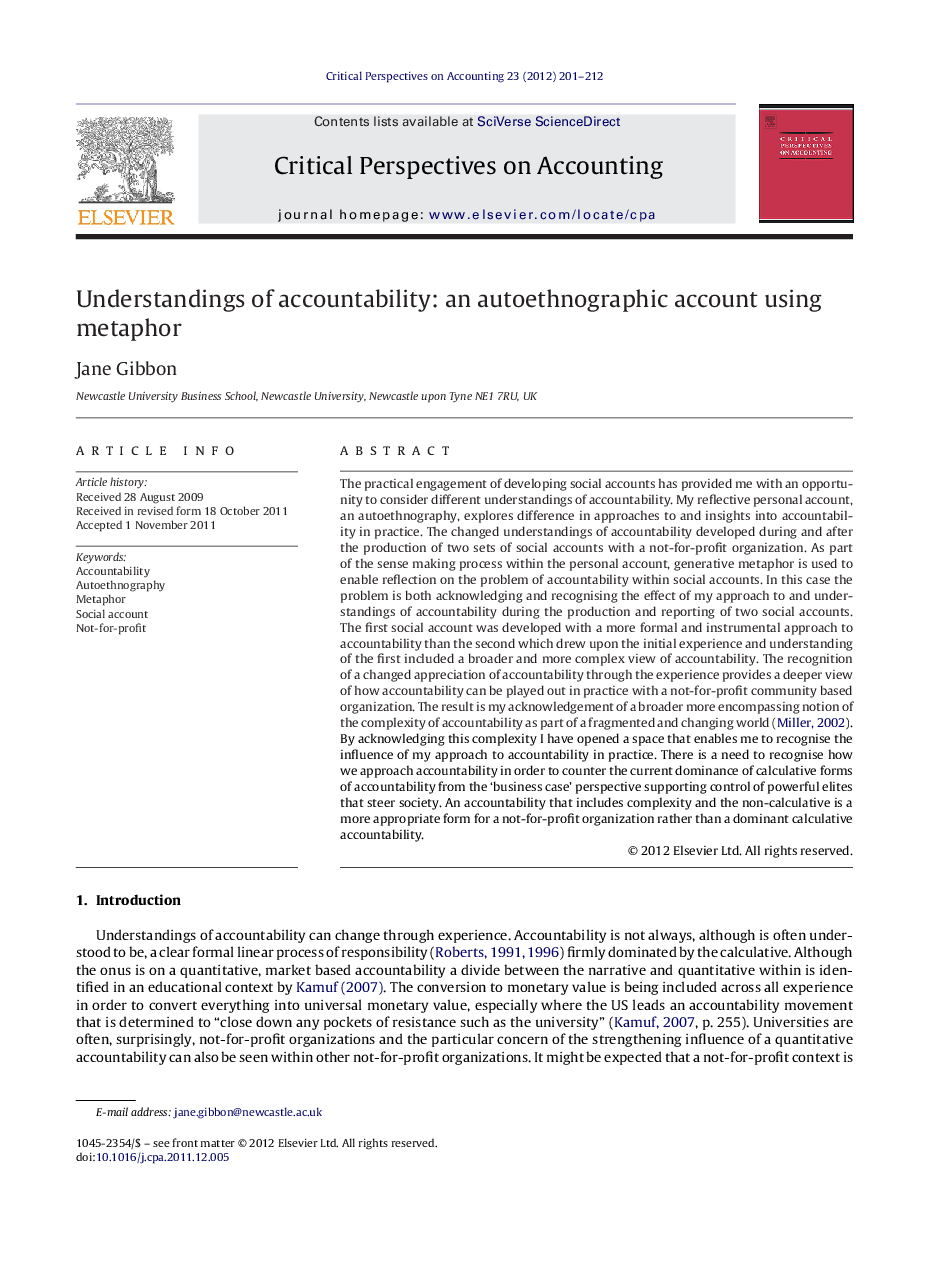| Article ID | Journal | Published Year | Pages | File Type |
|---|---|---|---|---|
| 1001585 | Critical Perspectives on Accounting | 2012 | 12 Pages |
The practical engagement of developing social accounts has provided me with an opportunity to consider different understandings of accountability. My reflective personal account, an autoethnography, explores difference in approaches to and insights into accountability in practice. The changed understandings of accountability developed during and after the production of two sets of social accounts with a not-for-profit organization. As part of the sense making process within the personal account, generative metaphor is used to enable reflection on the problem of accountability within social accounts. In this case the problem is both acknowledging and recognising the effect of my approach to and understandings of accountability during the production and reporting of two social accounts. The first social account was developed with a more formal and instrumental approach to accountability than the second which drew upon the initial experience and understanding of the first included a broader and more complex view of accountability. The recognition of a changed appreciation of accountability through the experience provides a deeper view of how accountability can be played out in practice with a not-for-profit community based organization. The result is my acknowledgement of a broader more encompassing notion of the complexity of accountability as part of a fragmented and changing world (Miller, 2002). By acknowledging this complexity I have opened a space that enables me to recognise the influence of my approach to accountability in practice. There is a need to recognise how we approach accountability in order to counter the current dominance of calculative forms of accountability from the ‘business case’ perspective supporting control of powerful elites that steer society. An accountability that includes complexity and the non-calculative is a more appropriate form for a not-for-profit organization rather than a dominant calculative accountability.
